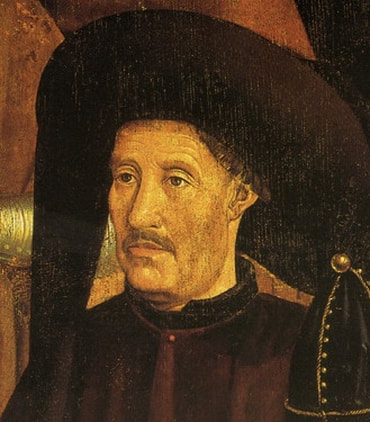HENRY THE NAVIGATOR
Henry the Navigator, or Infante Henrique of Portugal, was the Prince of Portugal during the height of its empire in the 15th century, and today is known as an important figure during the Age of Exploration. Born on March 4th, 1394, in Porto in the Kingdom of Portugal, he was the third son of the Portuguese King John I. Early in his life, Portuguese explorers began to explore down the west coast of Africa, especially, as part of the early Atlantic Slave Trade. Portuguese explorers would trade for, or capture, African people which they would then enslave and transport them to the New World to work on plantations.
|
Although he is often linked with the Age of Exploration, Henry the Navigator was not a sailor or explorer himself. Historians often credit him with beginning the Age of Exploration, due to his role in many of the early explorations done by Portuguese explorers. Henry sponsored many of the earliest voyages by Portuguese explorers as they took their caravels out into the open waters of the Atlantic Ocean. Explorations sponsored by Henry are credited with exploring the Madeira Islands in the north Atlantic, the Azores islands, and more importantly the west coast of Africa. He pushed his explorers to venture further south than any other European had gone before and helped establish the basic techniques of navigation that would play a critical role in later European expeditions. For example, Henry’s explorers began to chart the wind patterns in the Atlantic Ocean. These charts would help later explorers as they ventured across the Atlantic towards the New World, such as Christopher Columbus. As well, Henry had the captains of his explorations keep detailed records of their voyages, which wasn’t necessarily the normal practise of the time. This allowed a record to be kept of all explorations, such that they could be catalogued and referenced when needed.
Henry the Navigator died in Portugal on November 13th, 1460. |

